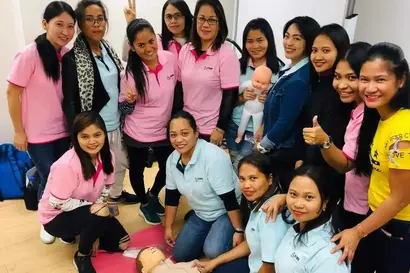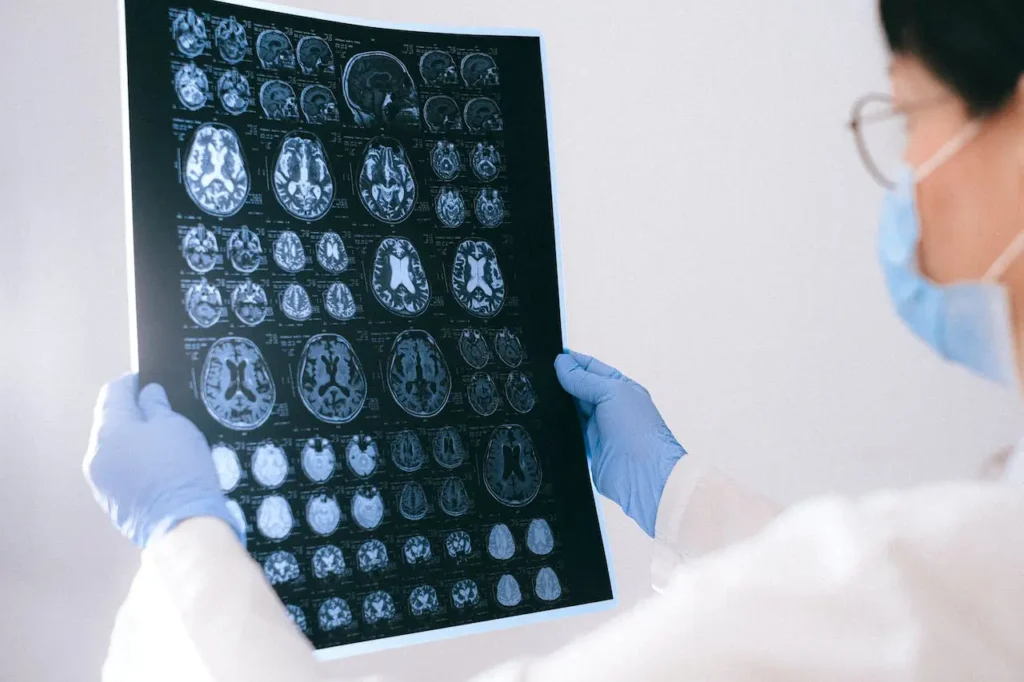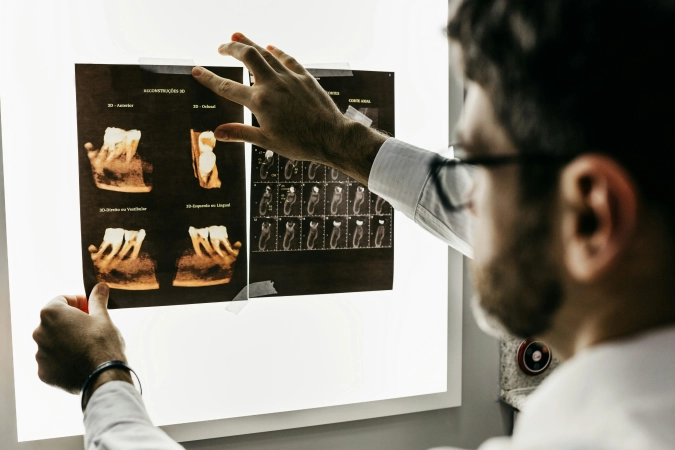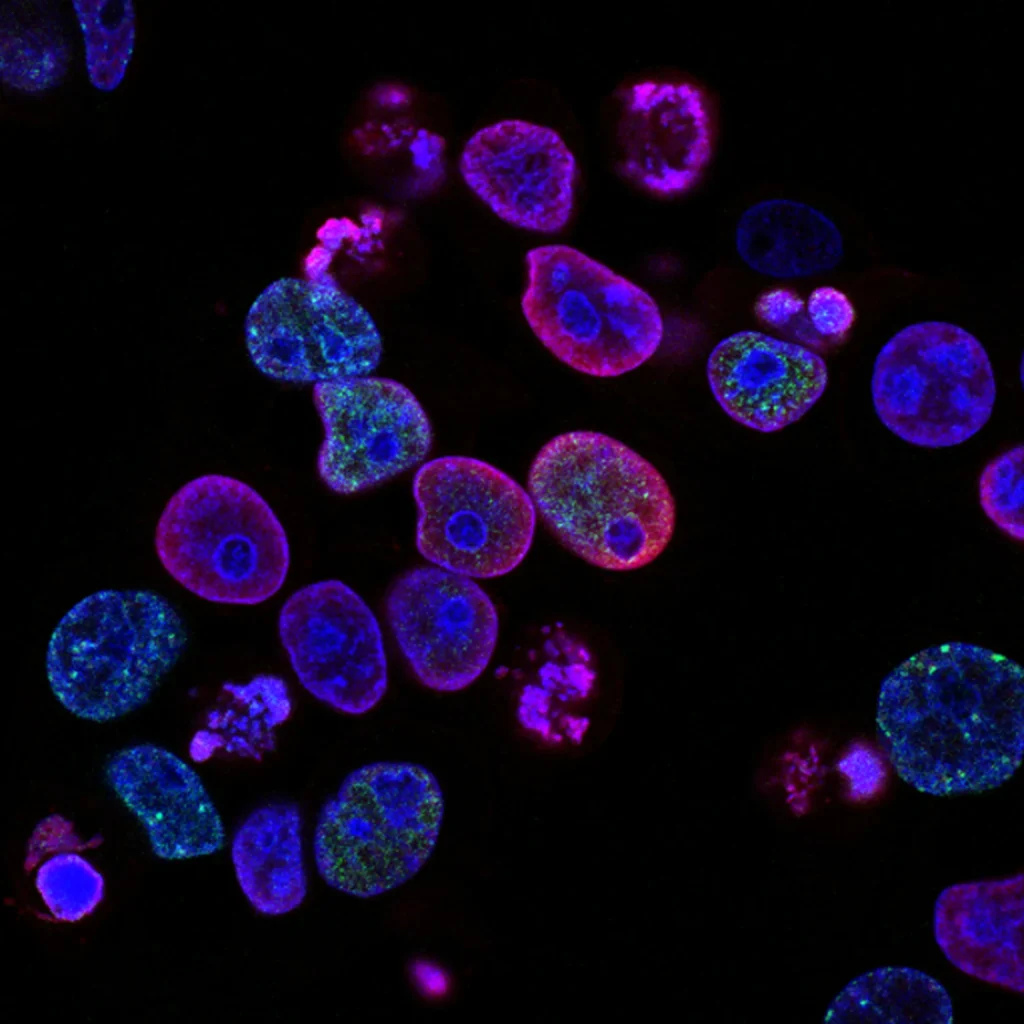Top 12 Caregiver Duties and Responsibilities: Ultimate Guide

- What is a caregiver?
- What are the duties and responsibilities of a caregiver?
- 1. Assistance with Daily Activities
- 2. Meal Preparation and Nutritional Support
- 3. Medication Management
- 4. Mobility Support
- 5. Cognitive Support
- 6. Emotional Support and Companionship
- 7. Health Monitoring
- 8. Transportation Support
- 9. Financial and Administrative Support
- 10. Encouraging Social Interaction
- 11. Household Management and Errands
- 12. Pet Care
- Recap of Caregiver Duties and Responsibilities
- Conclusion
What is a caregiver?
This post may contain affiliate links, meaning I may earn a commission if you make a purchase, at no extra cost to you. I only recommend products I trust. Thank you for your support.
A caregiver is an individual who provides assistance, support, and care to people who are unable to fully care for themselves due to age, illness, disability, or other circumstances.
Caregiver duties include helping with activities of daily living, medical needs, emotional support, and household tasks, aiming to enhance the well-being and quality of life of those they care for.
Caregivers play a pivotal role in the healthcare sector, providing a broad range of services from companionship to detailed medical care for individuals with varying needs.
The demand for individuals skilled caregivers is high with so many countries hiring and offering myriad opportunities for caregivers keen on contributing to the well-being of others.
To become a caregiver, specialized skills are often necessary, including experience with conditions such as Alzheimer’s or dementia, mental health support, as well as crucial first aid and CPR training.
From assistance with daily activities to medication management, mobility support, and beyond, this comprehensive article provides in-depth caregiver duties and responsibilities that come with the role.

What are the duties and responsibilities of a caregiver?
Caregivers are essential in supporting individuals who are elderly, frail, ill, injured, or have physical or mental disabilities.
Caregiver responsibilities are multifaceted, encompassing a wide range of duties that significantly contribute to the well-being and quality of life of their clients.
Here, we explore the top 12 caregiver duties and responsibilities:
1. Assistance with Daily Activities
Caregivers play a crucial role in assisting with Activities of Daily Living (ADLs), which are fundamental tasks that many individuals may struggle with due to age, illness, or disability.
These activities are essential for personal care and maintaining a good quality of life.
Caregiver duties associated with assistance with daily activities include:
- Bathing and Showering: Caregiver duties include assisting with bathing, which can include helping the individual into the bath or shower, washing, and ensuring safety to prevent slips and falls.
- Dressing and Grooming: Assistance extends to helping individuals choose appropriate clothing, dressing, and grooming tasks such as combing hair, shaving, and nail care to maintain hygiene.
- Dental Care: This includes helping with brushing teeth or caring for dentures, ensuring oral hygiene is maintained to prevent dental issues and infections.
- Feeding: They help in feeding those who have difficulty eating on their own due to physical limitations or cognitive impairments.
- Toilet Assistance: This includes help with using the restroom, which can be crucial for individuals with mobility issues or certain health conditions.
- Diaper Changing: For those who require them, regular changing of diapers is crucial to prevent skin irritations and infections.
2. Meal Preparation and Nutritional Support
This responsibility is crucial, especially for those with chronic conditions, dietary restrictions, or weakened physical conditions that might affect their eating habits.
Caregivers play a vital role in ensuring that individuals under their care receive nutritious meals tailored to their specific health needs.
Caregiver duties and responsibilities related to meal preparation and nutritional support encompass:
- Meal Planning: Caregiver duties include creating a 7-day meal plan that accommodates the dietary needs and preferences of the individual.
- Incorporating Preferences and Requests: Engaging with care recipients about their food preferences makes meals more enjoyable and can improve their appetite and nutritional intake.
- Grocery Shopping: Making shopping lists that reflect planned meals while considering any dietary restrictions and reading labels to avoid allergens, excessive sugars, and sodium.
- Food Safety and Preparation: Ensuring food safety is paramount. This includes proper cleaning, cooking, and storing of food to prevent foodborne illnesses.
- Low-Fat and Low-Sodium Options: Preparing meals with low-fat and low-sodium ingredients can help manage or prevent health issues such as heart disease or hypertension.
- Nutritional Monitoring: Keeping track of weight and nutritional status to detect any deficiencies or the need for dietary adjustments.
3. Medication Management
Medication management is a critical aspect of caregiving, involving the organization, administration, and monitoring of a person’s medications.
Caregivers must ensure that medications are taken correctly to manage health conditions effectively and avoid potential complications.
Caregiver duties related to medication management include:
- Establish a Care Plan: Working closely with healthcare providers to develop a comprehensive care plan that details each medication’s purpose, dosage, and timing.
- Understanding Medications: Ensure a thorough understanding of each medication’s effects, including possible side effects and what to do in case of an adverse reaction.
- Administering Medications: Providing medications at the correct times and in the correct doses, following the healthcare provider’s instructions strictly.
- Pill Organizers: Utilizing weekly pill organizers to manage daily dosages, ensuring accuracy and consistency.
- Monitoring for Side Effects: Caregiver duties include managing the process of prescription refills to ensure an uninterrupted supply of medication.
- Coordination with Pharmacy: Consistently reviewing and update the medication plan with medical professionals to ensure it remains effective and appropriate.
- Documentation and Record Keeping: Keeping precise records of all medications taken, including the time and dose, as well as any missed doses.
4. Mobility Support
Caregivers play a crucial role in assisting individuals with mobility issues, ensuring safety and comfort while moving or transferring.
It is essential for caregivers to use caregiving tools correctly for lifting and moving those in their care to prevent injuries and provide effective support.
Caregiver duties related to mobility support are as follows:
- Assisting with Ambulation: Helping the individual to stand, walk, and move from one place to another, ensuring they are stable and secure during movement.
- Wheelchair Assistance: Assisting with the use of a wheelchair, ensuring it is the correct size and fit for the individual, and that it is in good working order.
- Positioning and Repositioning: Adjusting the individual’s position in bed or a chair to maintain proper alignment and prevent pressure ulcers or contractures.
- Fall Prevention: Identifying fall risks in the home and implementing measures to reduce these risks, such as removing clutter and securing rugs.
- Proper Use of Mobility Aids: Training the individual on the proper use of mobility aids like canes and walkers and ensuring the devices are properly adjusted and suited to the individual’s height and weight.
5. Cognitive Support
Caregivers play a vital role in addressing the cognitive challenges faced by individuals with conditions such as Alzheimer’s disease, Parkinson’s disease, strokes, brain injuries, and multiple sclerosis.
Cognitive impairments can manifest as memory problems, communication difficulties, and behavioral issues. Check out some of the best memory care facilities.
Effective cognitive support not only enhances the quality of life for these individuals but also assists in managing the symptoms of their conditions.
Caregiver duties pertaining to cognitive support include:
- Encouraging Mental Exercises: Engaging in cognitive therapy activities such as puzzles, memory games, and reading can help stimulate the brain and potentially slow the progression of memory loss.
- Memory Support: Assisting with techniques to help with memory retention, such as mnemonics, note-taking, and the use of electronic reminders.
- Structured Daily Routines: Maintaining a consistent daily schedule can provide a sense of structure and predictability which can be comforting for individuals with cognitive impairments.
- Creating Memory Aids: Setting up photo albums, memory boxes, or memory boards with pictures and items from the past can aid in recalling personal history and important relationships.
- Behavioral Management: Recognizing and managing changes in behavior that may be related to cognitive issues, such as confusion, agitation, or withdrawal.
- Use of Assistive Devices: Encourage the use of assistive devices designed to aid memory and independence, such as automated medication dispensers or emergency alert systems.
6. Emotional Support and Companionship
Emotional support and companionship are vital components of caregiving, particularly for seniors who may experience increased feelings of loneliness and isolation during times like the holiday season.
These feelings can be exacerbated when family members are physically distant, making the role of a caregiver crucial in providing empathy and companionship as well.
Companionship caregiver duties involve:
- Active Listening: Being attentive and present, taking the time to listen to the concerns, stories, and feelings of the care recipient.
- Showing Empathy: Demonstrating a deep understanding of the care recipient’s emotions and experiences without judgment.
- Encouraging Social Interaction: Caregivers can facilitate social interactions by assisting seniors in using technology to connect with family and friends or by accompanying them to social events.
- Providing Encouragement: caregiver responsibilities include offering words of encouragement and support to uplift the care recipient’s spirits during challenging times.
- Promoting Mental Health: Regular interaction with caregivers can help reduce stress, anxiety, and the risk of depression, which are often exacerbated by loneliness.
- Shared Activities: Participating in hobbies or interests that the care recipient enjoys to keep them mentally and emotionally stimulated.
- Mood Monitoring: Caregiver duties involve adapting to changes in the care recipient’s mood and behavior and responding appropriately to their emotional needs.
- Spiritual Support: When applicable, providing or facilitating access to spiritual or religious support in accordance with the care recipient’s beliefs and wishes.
- Storytelling: Encouraging the sharing of personal stories and experiences to provide a sense of continuity and personal history.

7. Health Monitoring
Remote Patient Monitoring (RPM) is revolutionizing the way caregivers manage the health of their patients by allowing health data to be recorded at home and reviewed remotely by healthcare providers.
This system enables continuous tracking and assessment of patient health, facilitating timely recommendations, diagnoses, and treatment adjustments without the need for frequent in-person visits.
Caregivers are often tasked with monitoring the health of the individual under their care. This involves a range of responsibilities that ensure the care recipient’s health is observed and managed effectively.
Caregiver duties and responsibilities with regards to health monitoring include:
- Temperature Checks: Caregiver duties include regularly taking and recording body temperature to monitor for fever or other signs of infection.
- Heart Rate Monitoring: Checking and recording pulse rates to detect any irregularities or changes that might indicate a health issue.
- Blood Pressure Tracking: Monitoring blood pressure to ensure it stays within a healthy range, especially for those with hypertension is also one of the caregiver responsibilities.
- Medication Reminders: Ensuring that the care recipient takes their prescribed medication on time and in the correct dosage.
- Medication Logs: Keeping accurate records of medications taken to avoid mistakes or duplications and to share with healthcare providers.
- Pain Assessment: Inquiring about pain levels and discomfort to help manage pain effectively.
- Disease-Specific Monitoring: Keeping track of symptoms and management of chronic conditions like diabetes, COPD, heart disease, kidney disease, etc.
- Dietary Monitoring: Ensuring the care recipient is maintaining a balanced diet and checking for any changes in appetite or eating habits.
8. Transportation Support
Providing transportation is a key aspect of caregiving, particularly for individuals who are unable to drive themselves due to age, disability, or medical conditions.
Here are the caregiver duties related to transportation support:
- Driving Support: Driving the care recipient to and from medical appointments, social events, senior centers and community programs where additional support and social interaction can be found.
- Physical Support Assistance: Offering physical support getting in and out of the vehicle and navigating to and from the appointment location.
- Scheduling Appointments: Arranging appointments for the care recipient and ensuring they are aware of upcoming visits.
- Vehicle Accessibility: Ensuring the vehicle is accessible for the care recipient, including the use of ramps or lifts if necessary.
9. Financial and Administrative Support
Caregivers sometimes provide essential financial and administrative assistance especially if the recipient may not be fully able to handle their own financial affairs due to age, illness, or disability.
Here’s an overview of the caregiver duties and responsibilities that may fall under this category:
- Bill Tracking: Keeping track of due dates for bills and ensuring they are paid on time to avoid late fees or service interruptions.
- Budgeting: Helping create and maintain a budget to manage the care recipient’s financial resources effectively.
- Handling Bank Visits: Assisting with or conducting banking transactions such as depositing checks or withdrawing cash.
- Insurance and Benefits Management: Reviewing and managing insurance policies to ensure they are up to date and meet the care recipient’s current needs and assisting with the submission of insurance claims and tracking their progress.
- Overseeing Government Benefits: Ensuring that the individual receives any government benefits they are entitled to, and managing these benefits properly, is another important aspect of financial caregiving.
- Estate Planning: Caregiver responsibilities include assisting in the organization of estate planning documents, such as wills or trusts, if applicable.
- Mail Sorting: Helping to sort through mail and identifying what requires immediate action or response.
- Handling Correspondences: Assisting with writing letters or emails, especially concerning financial or administrative matters.
- Maintaining Detailed Records: Keeping comprehensive records of all financial transactions is essential. This includes receipts, bank statements, and documentation of significant transactions.
- Monitoring for Fraud and Scams: Caregivers must be vigilant about protecting their charges from financial scams and fraud, which often target the elderly and vulnerable.
10. Encouraging Social Interaction
Social interaction is a critical component of caregiving that contributes to the emotional and psychological well-being of the care recipient.
Active social engagement offers numerous benefits, such as improved physical and mental health, enhanced memory retention and mental sharpness, and reduced depressive symptoms.
The caregiver’s role in facilitating social engagement can include a variety of activities and responsibilities:
- Fostering Relationships: Encouraging family connections and facilitating communication and visits with family members to maintain strong family bonds.
- Community Engagement: Identifying and accompanying the care recipient to local community events that align with their interests.
- Hobby and Interest Support: Participating in or supporting hobbies and interests that the care recipient enjoys, such as gardening, crafting, or music.
- Social Groups and Clubs: Helping to find groups or events related to specific interests, such as a chess club or a knitting group.
- Exercise and Recreation: Assisting the care recipient in attending outdoor and indoor group exercise classes like yoga, tai chi, or water aerobics designed for their age and ability level.
- Technology for Socialization: Setting up and assisting with video calls to allow face-to-face interaction with loved ones, especially if they live far away and social media platforms to stay connected with family and friends.
- Celebrations and Milestones: Planning or facilitating celebrations for special occasions like birthdays and anniversaries to honor the care recipient’s milestones and achievements.
11. Household Management and Errands
Caregivers often assist with the everyday management of the household and perform various errands to ensure a safe and organized living environment for the care recipient.
Here’s a breakdown of typical caregiver duties and responsibilities related to household management:
- Household Chores: Caregiver duties involve performing light housekeeping duties such as dusting, laundry, vacuuming, and tidying up to maintain a clean living space.
- Maintenance and Repairs: Arranging for routine maintenance of household systems like heating and cooling, plumbing, and electrical systems.
- Dishwashing and Kitchen Maintenance: Keeping the kitchen area clean and organized, which includes washing dishes and managing waste disposal.
- Performing Safety Checks: Regularly checking the home for hazards such as loose carpets, slippery floors, and obstructed pathways.
- Installing Safety Devices: Equipping the home with handrails, grab bars, non-skid mats, and adequate lighting, especially in stairways and bathrooms.
- Clutter Control: Helping to declutter spaces and organize items to keep the living environment orderly and navigable.
- Gardening and Outdoor Care: Arranging for lawn mowing, leaf raking, snow removal services, and gardening tasks such as planting, weeding, and watering plants as necessary.
- Grocery Shopping: Creating a shopping list, buying groceries, and organizing the pantry and refrigerator.
- Emergency Preparedness: Ensuring smoke and carbon monoxide detectors are functional, fire extinguishers are accessible, and emergency numbers are posted visibly.
12. Pet Care
Pets often play a significant role in the lives of those requiring care, providing companionship, comfort, and a sense of purpose.
Caregivers may take on various pet care responsibilities to ensure that the care recipient’s furry friends are healthy and happy.
Here are detailed caregiver duties regarding pet care:
- Feeding and Hydration: Caregiver duties and responsibilities also involve ensuring pets are fed regularly and have access to fresh water at all times.
- Grooming: Regular grooming sessions including brushing, bathing, and nail trimming to maintain the pet’s cleanliness and comfort.
- Diet Management: Monitoring the pet’s diet and making adjustments as recommended by a veterinarian, especially for pets with health issues.
- Exercise and Play: Providing adequate physical activity through walking or playtime to keep pets healthy and engaged.
- Ensuring Cleanliness: Maintaining a clean living environment by managing litter boxes and cleaning up any messes created by pets.
- Veterinary Appointments: Scheduling and transporting pets to veterinary appointments for routine check-ups, vaccinations, or when health issues arise.
Recap of Caregiver Duties and Responsibilities
- Assistance with Daily Activities
- Meal Preparation and Nutritional Support
- Medication Management
- Mobility Support
- Cognitive Support
- Emotional Support and Companionship
- Health Monitoring
- Transportation Support
- Financial and Administrative Support
- Encouraging Social Interaction
- Household Management and Errands
- Pet Care
Conclusion
We have throughly navigated the extensive realm of what is a caregiver and caregiver duties and responsibilities, emphasizing the vital roles they play in enhancing the lives of those they support.
From ensuring the health and well-being of individuals through specialized care to the intricacies of financial and administrative support, caregivers embody a multifaceted skill set that is indispensable.
Their commitment to providing physical, cognitive, and emotional support underscores the significant impact they have on improving the quality of life for individuals requiring care.
Through understanding and addressing the comprehensive caregiver responsibilities outlined in this guide, we can enhance the caregiving experience for both caregivers and those they serve, fostering an environment of compassion and respect.
You can also use this article for caregiver duties for resume.
Additionally, check out these articles:
- How to write a caregiver resume?
- USA vs Canada: What is the best for caregivers?
- Caregiver coping strategies
- What is the difference between a caretaker and caregiver?
- Respite care for caregivers
- Best online nursing programs
- Discover the best 20 childcare centers
- How to initiate end of life conversations with elderly?
- Best Medicare advantage plans
- How to stop GERD cough
- What foods to avoid if alkaline phosphatase is high
- 5 foods to avoid with trulicity
- Tips for hiring a nanny
- Find urgent care near me
- Did you know you can get Ozempic for free?




